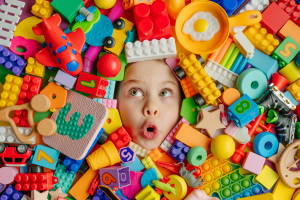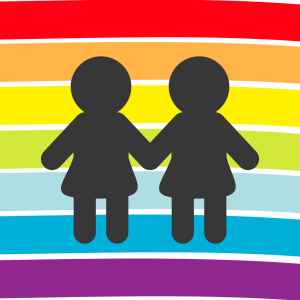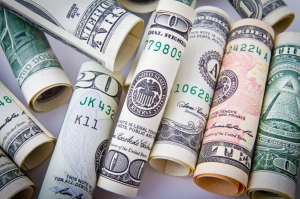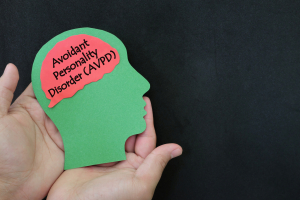Install the app
You are using an out of date browser. It may not display this or other websites correctly.
You should upgrade or use an alternative browser.
You should upgrade or use an alternative browser.
LGBTQ+ Stories!
- Thread starter Gab19
- Start date
I’m bisexual, and for me, it was a step-by-step process.
I figured out that I liked both girls and boys—though I liked boys more—when I was 9. I kept it a total secret because I was disgusted and ashamed of myself since it conflicted with the Jewish beliefs that I grew up with. The idea of being attracted to more than one sex never sat well with me. For a while, I pushed boys out of my mind and focused on beautiful yet unattainable women like Hayley Williams and Beyoncé. When I was 10, I even dated this pretty girl named Mikayla for a few months.
In middle school, I unconsciously gravitated towards the LGBTQ kids—some of the greatest friends I have today. Whenever the conversation of crushes and romance came up, I always pretended to be 100% straight until one of my friends caught on.
She pulled me aside for a private conversation after school and asked me if I was actually straight. She herself was openly a lesbian, so I took a leap of faith and trusted her. I told her that I liked both girls and boys and she gave me a term to finally describe it: bisexual.
I slowly came out to the rest of my friend group first since I trusted them, and I even scored a date with a cute boy named Xander (we never made it past the first date).
I started going to an art school after middle school where a significant amount of people were LGBTQ, which gave me a greater sense of belonging. I grew more confident and told more people as long as they weren’t linked to my conservative family members. Everyone at school, work, and MMA knew I was bisexual by the time I was 15.
I never planned on coming out to my parents, but a few weeks ago my sister’s friend spotted me on a date with Dylan and told my sister. The next day Dylan snuck into my place because I assumed I’d be home alone all day, but my folks got home early and caught us together. There was a massive argument, my sister outed me, and now I’m living with my boyfriend because I got kicked out.
Long story short—actually, this isn’t short, it’s a really long story—coming out was a very complex process for me.
I figured out that I liked both girls and boys—though I liked boys more—when I was 9. I kept it a total secret because I was disgusted and ashamed of myself since it conflicted with the Jewish beliefs that I grew up with. The idea of being attracted to more than one sex never sat well with me. For a while, I pushed boys out of my mind and focused on beautiful yet unattainable women like Hayley Williams and Beyoncé. When I was 10, I even dated this pretty girl named Mikayla for a few months.
In middle school, I unconsciously gravitated towards the LGBTQ kids—some of the greatest friends I have today. Whenever the conversation of crushes and romance came up, I always pretended to be 100% straight until one of my friends caught on.
She pulled me aside for a private conversation after school and asked me if I was actually straight. She herself was openly a lesbian, so I took a leap of faith and trusted her. I told her that I liked both girls and boys and she gave me a term to finally describe it: bisexual.
I slowly came out to the rest of my friend group first since I trusted them, and I even scored a date with a cute boy named Xander (we never made it past the first date).
I started going to an art school after middle school where a significant amount of people were LGBTQ, which gave me a greater sense of belonging. I grew more confident and told more people as long as they weren’t linked to my conservative family members. Everyone at school, work, and MMA knew I was bisexual by the time I was 15.
I never planned on coming out to my parents, but a few weeks ago my sister’s friend spotted me on a date with Dylan and told my sister. The next day Dylan snuck into my place because I assumed I’d be home alone all day, but my folks got home early and caught us together. There was a massive argument, my sister outed me, and now I’m living with my boyfriend because I got kicked out.
Long story short—actually, this isn’t short, it’s a really long story—coming out was a very complex process for me.
I came out to my friends and classmates in seventh grade, when I was twelve. Most of my friends were accepting of my sexuality, I only had one friend who told me that it was “disgusting” and that “God didn’t approve of it”, but he eventually came around. And after I came out, my friends even offered to hook me up with other gay guys. Which was a nice offer, but I of course denied it. My classmates were a different story though…What are some LGBTQ+ "coming out" stories?
My classmates would often make remarks about me, especially the hyper-masculine Douce bags in my class. They would say things like “I bet he wants to have sex with you, the random name” or “that faggot doesn’t belong here”, for example. They would also come up to me during lunch and tease me about being gay. I only had one guy out of my friendship circle stand up for me while this was going on. He was basically one of the toughest guys in school and threatened to beat the shit out of them if they said anymore to me.
I thanked him after that and we became pretty good friends. He later told me that he was bisexual and that he liked me. We went out after that for about two years, but we had to break up when I was moving to America, as we decided that a long-distance relationship wouldn’t work out. However, we still keep in touch with each other and text over Kik.
After moving to New Jersey from Russia, I found that many people here were supportive of homosexuality. Which came as a shock, especially since where I came from it was something taboo. I also went out to my friends and classmates at my old school and they were very accepting of me. I didn’t get one single negative response.
I went out to my parents just last month and they were surprisingly accepting of it. When I was little, my mother and father told me that being homosexual was a sin, and to never associate with “one of them.” They must’ve changed their attitudes since then. When I told them, they hugged me and told me that they would love me no matter what. My dad even said, “at least we don’t have to worry about you getting pregnant.”
So yeah, I guess coming out has been a pretty positive experience for me.
Well, mine isn’t really nice, not entirely anyway, so feel free to ignore it if you’re looking for positivity.
Since I was 10, I knew I was bisexual. I knew it because I had a crush on my best friend (f) and the year after I had a crush on a boy in my class. I never told anyone about any of those, but not because I was ashamed, I just thought it was normal.
As I grew up, I started to understand my parents’ sexist and homophobic “jokes” and how people Would assume I was jealous every time I commented on a girl being pretty. I realized it wasn’t normal, but that still was no reason for 13-year-old me to think it was wrong.
When I turned 14, I got my first girlfriend. At that point, I had come out to my closest friends, which I don’t remember doing because it was all very natural. It was basically “Hey, I think I like girls.” and them being “Oh, cool. Me too.”.
It was two months after we started our relationship when my parents got my phone. They forced me to unlock my phone, read all the texts, and then it all went to hell. My mom cried and cried and cried, and my father hit me and almost kicked me out.
I was scared of what else they could find (such as me telling my best friend the type of abuse that goes on in my house), so I deleted everything from my phone by reporting it as stolen on finding my iPhone. I slept at my grandmother’s house that night, who kindly ignored everything that my parents told her and took care of me.
I was heavily punished, but the next day, it was like it never happened. I talked to my grandmother the next day. I told her I was bisexual and I explained what it meant. She was scared of what the world could do to me because of what I was, and she barely understood the concept, but she told me she loved and accepted me. She told me to bring my girlfriend to her house so we could all have dinner together. With time, she got used to it, and now she defends me from any type of homophobic comment or “joke”.
My parents, however, decided to pretend I didn’t like girls for two more years and I honestly had no strength to talk to them like I did to my grandma. I told my mom after those two years, crying, that I was attracted to girls too. She cried again but said it was okay as soon as she didn’t see me kissing any. My father told me he had nothing to say.
They still ignore it, if I’m being honest, and still consider it an anomaly, but at least I wasn’t kicked out.
I told my sister too, and she hugged me and cried because she was scared of what my parents would do. She told me she loved me, and that she didn’t care if I married a boy or a girl, as long as I was happy.
My grandmother, my sister, and my friends give me all the support I need and I learned to ignore, just like my mom and my dad do, whatever other people think. Yes, I hate it when people harass me, but it doesn’t make me feel bad about myself, only about those who were ignorant enough to hold such conservative views.
Since I was 10, I knew I was bisexual. I knew it because I had a crush on my best friend (f) and the year after I had a crush on a boy in my class. I never told anyone about any of those, but not because I was ashamed, I just thought it was normal.
As I grew up, I started to understand my parents’ sexist and homophobic “jokes” and how people Would assume I was jealous every time I commented on a girl being pretty. I realized it wasn’t normal, but that still was no reason for 13-year-old me to think it was wrong.
When I turned 14, I got my first girlfriend. At that point, I had come out to my closest friends, which I don’t remember doing because it was all very natural. It was basically “Hey, I think I like girls.” and them being “Oh, cool. Me too.”.
It was two months after we started our relationship when my parents got my phone. They forced me to unlock my phone, read all the texts, and then it all went to hell. My mom cried and cried and cried, and my father hit me and almost kicked me out.
I was scared of what else they could find (such as me telling my best friend the type of abuse that goes on in my house), so I deleted everything from my phone by reporting it as stolen on finding my iPhone. I slept at my grandmother’s house that night, who kindly ignored everything that my parents told her and took care of me.
I was heavily punished, but the next day, it was like it never happened. I talked to my grandmother the next day. I told her I was bisexual and I explained what it meant. She was scared of what the world could do to me because of what I was, and she barely understood the concept, but she told me she loved and accepted me. She told me to bring my girlfriend to her house so we could all have dinner together. With time, she got used to it, and now she defends me from any type of homophobic comment or “joke”.
My parents, however, decided to pretend I didn’t like girls for two more years and I honestly had no strength to talk to them like I did to my grandma. I told my mom after those two years, crying, that I was attracted to girls too. She cried again but said it was okay as soon as she didn’t see me kissing any. My father told me he had nothing to say.
They still ignore it, if I’m being honest, and still consider it an anomaly, but at least I wasn’t kicked out.
I told my sister too, and she hugged me and cried because she was scared of what my parents would do. She told me she loved me, and that she didn’t care if I married a boy or a girl, as long as I was happy.
My grandmother, my sister, and my friends give me all the support I need and I learned to ignore, just like my mom and my dad do, whatever other people think. Yes, I hate it when people harass me, but it doesn’t make me feel bad about myself, only about those who were ignorant enough to hold such conservative views.
Mine is really long. Many apologies. I am now out as just queer- both in gender and sexual orientation, but this took some time to figure out. This is taken from a speech I did at an LGBT event.What are some LGBTQ+ "coming out" stories?
I consider myself non-binary, genderqueer to be precise. This is a definite lesser-known gender, in a society where everything is segregated by binaries. To me, this means that I don’t feel comfortable identifying as male or female, for most of the time I feel like both, or somewhere in-between. And due to some little quirk in my brain my idea of my gender and the way I express myself often changes, sometimes feeling more male than female and vice versa. This does present some challenges as I often don’t feel dysphoric or uncomfortable with my body at all, which leads me to feel I am making a fuss for no reason. But these periods are brief, and being able to say this fills me with pride, it has taken 3 years of questioning my identity to reach this point, and I can’t tell you how happy I am that I’m finally here.
Around my 13th birthday I had fallen out with all my friends, so was introduced to a new group. Some of the people in this group identified as bi or gay and this were all new to me but I felt more at ease around them than I ever had with my old friends. Shortly after meeting them, I realized a lot of conflict in my head was due to me not being straight, so I told them I might be bisexual. They were very kind and their attitudes towards me didn’t change in the slightest. I started going to an LGBT youth group with one of these friends, and I felt at home, this is now my fourth year in the group and my third year as part of the national youth council.
A few months after I turned 13, I went into my parents’ room and asked if we could talk. I had been crying, so my mum looked concerned and knew it was important. I said to them that I liked girls, and they were overly wonderful about it- we talked for ages and I felt so happy that they were accepting. But then my dad said something that still sticks with me today- ‘you don’t want to be a boy though, do you? That would just be too confusing.’
Some months later, I asked my friend if we could talk, and we walked to a quiet place looking over the playing fields. I had come out as ‘gay’ to him the year before, and this friend had been the most supportive of my coming out and my identity, so I decided I would tell him how I really felt. He asked what was wrong and I said to him ‘I don’t think I’m really a girl.’ We hugged, and he said he was there for me and that we would talk more later. We never did, and he forgot.
Soon after that, things became quite a struggle. I was feeling really down, and I began to diet excessively, without my family knowing. I thought about dying, and I hurt myself when it got too much. So, I put my thoughts on hold. I postponed telling anyone because any more stress in my life would be too much, and I was so wrapped up in my problems that my brain wouldn’t fit anything else. I made myself forget as much as I could and convinced myself that I was happy as I was, and it wasn’t important. I was uncomfortable though. I did radio and tv interviews talking about my sexual orientation and though I said I was a lesbian, whenever someone called me one it made me uneasy, though I brushed it off as much as I could and tricked myself into believing I was a gay female. It went on like this for around 6 months.
My family eventually discovered what was wrong when my friend’s mother said I had scars after I showed this friend in a moment of desperation. We talked and cried and I spent the next year focusing on getting better. I gained weight and began to feel happier and at ease with the world. The thoughts that I wasn’t a girl were still at the back of my mind, but I was too scared and said I would get better before addressing them again. I put all of my focus into recovering, and there was still no room in my brain.
It was around this time that I began dressing as femininely as I could. I would wear skirts and dresses, grow my hair out and curl it, paint on make-up, and order shoes online. I would feign excitement about things like shopping trips and romance films so that no one could deny I was female. I trained myself to walk lightly with good posture and to talk higher and sweeter. And I began to hate myself. All I wanted was to have a flat chest and wear jeans and lift weights, but I was so worried I would be considered strange by everyone else. Skirts made me uncomfortable, my hair would get in the way all the time, and every week there would be a new unwanted sexual advance or comment due to me dressing the way I did. It was also at this time that I officially became ‘overweight’, and it felt like I had lost all control.
Dieting took a hold of my life, and I nearly killed myself around 5 times. I knew I couldn’t carry on like this, but I didn’t want to decide to come out myself. So, I put the weight of all my stress on a skirt. I ordered a skirt online and decided that if it fit and I liked it I would stay quiet for as long as I could. If it didn’t fit, I would tell my sister how I felt. Needless to say, the skirt was awful, and I almost made sure of that by ordering it for 5 quid off amazon. So, I told my sister, and she was amazed. She bought me my first binder with her debit card and said she’d keep quiet as long as I needed her to. She asked me loads of questions about it and I was finally able to talk. She told me she had always had suspicions about my gender because of how I was as a child. I went on to tell my parents the next week, along with a few close friends. My parents were mostly confused and a few situations led to raging arguments and me wanting to leave home but I stuck it out and they got better with it, now they mostly use the right pronouns and even call me my chosen name.
Friends were a bit of a different story. Those at LGBT were wonderful, and picked up my new pronouns with ease, supporting me through changing my name as well. Friends at school, however, clearly still see me as female. I am still ‘the lesbian’ or ‘the dyke’ and one friend, in particular, insists that I can’t use ‘they’ pronouns because ‘they’ is a plural. But I am putting up with it and I know things will be easier when I go to uni and can introduce myself using my real name. However resistant my friends are to my transition, I continue to correct them on my gender, and bring up gender-related issues when we are talking. I also use Facebook as a platform quite frequently, having started a series called ‘unnecessarily gendered products’ in which I raise awareness of the little things that make trans lives uncomfortable- leading to many arguments and lots of name-callings, but some people leave with a new perspective. I officially came out on Facebook a month or so ago, and the response was overwhelmingly positive.
What I’m trying to say is that non-binary people are real, though there is hardly any news or publicity about us. We are faced with real problems due to our gender identities, and not being able to use public restrooms, or being told by teachers and co-workers we are making things up does have a negative impact on our lives. Many of us are dysphoric like other trans individuals, and our dysphoria and discomfort are just as valid. I exist.







